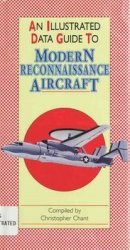Many historians have discussed the question of why Mao introduced the 100 Flowers campaign. The reason for concentrating on this particular theme is that it is seen as illustrating the essential nature of Mao's approach to the governing of China. Some writers, most notably Jung Chang in her 2005 biography of Mao, argue that the speed with which he reversed his policy was proof that the campaign had been a trick on his part from the beginning. She suggests that, far from being intended as a liberalizing measure, it was a deliberate manoeuvre by Mao to bring his critics into the open so that they could be easily exposed, identified and removed (see Source H).
Source h
An excerpt from Mao: The Unknown Story by Jung Chang and Jon Halliday, published Jonathan Cape, London, 2005, p. 435.
Few guessed that Mao was setting a trap, and that he was inviting people to speak out so that he could use what they said as an excuse to victimise them. Mao's targets were intellectuals and the educated, the people most likely to speak up.
As Jung Chang sees it, the 100 Flowers campaign was part of the movement towards a controlled society in which all expression of opinion had to meet the criteria of political correctness as defined by Mao. The way in which 'the anti-rightist' campaign purged the government and Party of his critics was of a scale and ruthlessness that anticipated the upheavals of the Cultural Revolution a decade later (see page 130). This is a strongly put case, but it needs to be pointed out that Jung Chang has become renowned, not to say notorious, for her personal hatred of Mao, an animus that other writers have suggested distorts her judgement. In Was Mao Really a Monster? (a 2010 book edited by Gregor Benton and Lin Chun), fourteen scholars offered a powerful rebuttal of Jung Chang's claims by pointing to her suspect methodology and lack of balance.




 World History
World History









